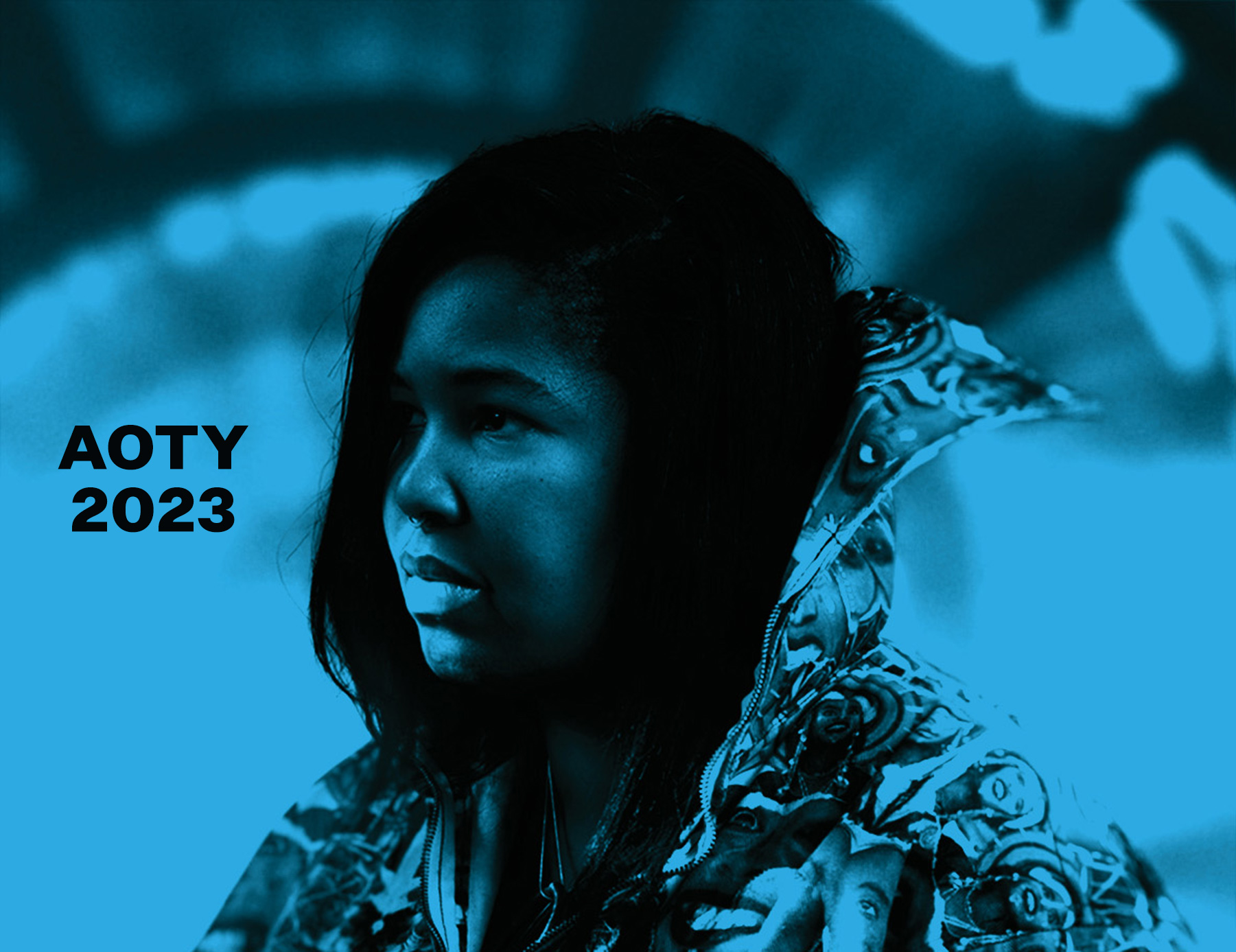AOTY 2023: “In order to achieve resonance in this music, verbal communication is not necessary” – Divide and Dissolve
Takiaya Reed of Australia based instrumental duo Divide and Dissolve discussed the political power of the wordless, heavy Systemic – one of our Albums of the Year

In his L&Q review of Divide and Dissolve’s 2021 album Gas Lit, Dafydd Jenkins described Takiaya Reed’s radical doom project as “the coolest thing to happen to metal since Deafheaven”. Daf was right then, and he still is now, particularly in the wake of Systemic, the heaviest yet most elegant and nuanced D&D record yet. These tracks are still enormous slabs of noise, but their contours are more ornate and refined than before, the gale-like guitars and squalls of woodwind crashing hard against broiling percussion. Throughout it all, the political commitment that drives everything that this band do is front-and-centre, a cocktail of postcolonial struggle, abolitionism and radical anti-racism giving their tectonic sound a human focus. It’s a remarkable record, a thrilling evolution of their previous work, and has deservedly exposed the Australian duo to a wider audience than ever.
Congratulations on the release of Systemic – from an outsider’s perspective, it feels like a real breakthrough, your richest work yet and a real step up in terms of audience size too. Is that how you feel about it? What sets it apart from previous Divide and Dissolve albums, in your eyes?
Takiaya Reed: Thank you! This album is a continuation of the previous works. I feel excited about this album and excited for the next one. The work is consistently evolving when I listen back to it I find new moments in it.
Although he’s worked on your albums before, Ruban Neilson’s (Unknown Mortal Orchestra) production sounds particularly clear and direct on Systemic. How has it been working with him, and has that relationship changed much over time?
In the studio I’m reminded of our deep and profound love of music. This is the connection and key to why things sound and feel the way they do. Since we have met I have always felt understood by Ruban. This is an irreplaceable connection. If you were in the room with us you might become bored because of how much we talk about pedals and the nuance of sound. I think I’m left with the knowing that I am a nerd.
You’ve spoken before about your belief in non-verbal communication, and the way that you want your music to resonate profoundly with people through its instrumentation, rather than through vocals. Is this something you’ve always wanted to prioritise, even before Divide and Dissolve?
Resonance could be defined as: the property of having a molecular structure which cannot adequately be represented by a single structural formula but is a composite of two or more structures of higher energy. Or: the reinforcement or prolongation of sound by reflection from a surface or by the synchronous vibration of a neighbouring object. Or: the condition in which an object or system is subjected to an oscillating force having a frequency close to its own natural frequency.
In order to achieve resonance in this music and formation, verbal communication is not necessary. I relate to these definitions and am not feeling their limitations. I would like to feel a closeness with them. I’m not sure if I wanted to prioritise non verbal communication, but rather I have always noticed its importance. There is so much information in this form of communicating. It informs so much around us. The experience and feeling of resonance in my opinion can sometimes be clouded by people utilising verbal communication. There are so many important and different ways to communicate.
Do you feel like people always understand what you’ve intended them to from your music – and relatedly, do you care, or is the ambiguity that’s inevitable without explicit lyrics something that interests you for its own sake?
Sometimes I believe they understand and sometimes they don’t. When people are able to understand it feels like they understand deeply. Sometimes it’s shocking the amount of understanding that occurs.
How has touring a record like this been in 2023? Its political content is what makes it so special, and one reason why we love it so much – but in an international climate that feels increasingly hostile to radical ideas, has that ever led to complications while out on the road?
The fact that in the van and while on tour we are still Black and Indigenous. Having Black and Indigenous people in a touring party we sometimes experience racism and aggressive checks in the van or in the touring environment. Recently while on tour the following happened: I am sober, I have never done drugs in my life, and this officer aggressively accused and questioned me about being a drug user. It made me feel terrible because he was refusing to listen to me and hear my answers. When my humanity or the humanity of the people who we are touring with are called into question, I sometimes feel discouraged, but then when they are tearing the merch boxes apart or destroying my suitcase and have to look at the destroy white supremacy T-shirts or dismantle colonial borders shirts, and smell the filth of my laundry, I smile and keep on moving. In contrast, touring in 2023 is exciting, challenging and exhilarating. It feels like it’s important to be creative when coming up against challenges and it’s also equally as important to remember why we are touring and to focus on the good. Sustainability is key, because touring is such an immense activity. I am extremely grateful for the team we tour with. Resilience is a requirement of touring, especially when incessantly speaking about getting our land back and reparations.